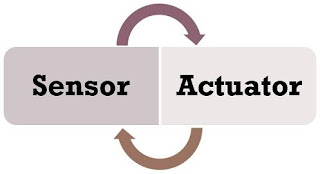Smart Intelligent Agriculture: Applications of Recent Nanosensors Technology
Agriculture requires technical solutions
for increasing production while lessening environmental impact by reducing the
application of agrochemicals and increasing the use of environmentally friendly
management practices. Both biotic and abiotic stresses lead to a massive loss
in crop yield, leading to a decrease in agricultural production worldwide. The
loss of agricultural products can be minimized by adopting modern technology
such as smartphones with nanosensors to detect crop stress at an early stage. Smart
and precision agriculture are emerging areas where nanosensors and electronic
devices can play an important role for improving crop productivity by
monitoring crop health status in real-time. Various types of nanosensors have
been reported for detection and monitoring plant signal molecules and metabolic
contents related with biotic and abiotic stresses. Nanobiosensors are customized
using various properties of nanomaterials to combat various challenges of contemporary
techniques. Nanobiosensors have unprecedented
levels of performance for sensing ultra-trace amount of various analytes for in
vivo measurement. These nanosensors communicate with and actuate electronic
devices for agricultural automation. Thus, both biotic and abiotic plant
stresses and nutritional deficiency are monitored in real-time to report crop
health status for precise and efficient use of resources.
For more information, please click the following presentation:


